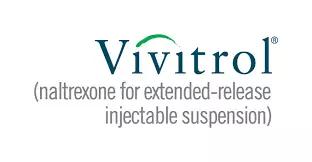Surprise! Treatment of alcohol abuse drugs can inhibit HIV levels?
June 21, 2018 Source: WuXi PharmaTech
Window._bd_share_config={ "common":{ "bdSnsKey":{ },"bdText":"","bdMini":"2","bdMiniList":false,"bdPic":"","bdStyle":" 0","bdSize":"16"},"share":{ }};with(document)0[(getElementsByTagName('head')[0]||body).appendChild(createElement('script')) .src='http://bdimg.share.baidu.com/static/api/js/share.js?v=89860593.js?cdnversion='+~(-new Date()/36e5)];Researchers at Yale University recently published a study (INSPIRE) in the Journal of AIDS (JAIDS): an FDA-approved drug for the treatment of alcohol abuse, XR-Naltrexone (slow release naltrexone), can help Antiviral therapy and inhibition of HIV levels in HIV-infected/AIDS patients.

HIV is a type of virus that weakens the body's immune system. It can destroy the body's important immune cells against diseases and infections, seriously affecting the quality of life of patients. According to the Centers for Disease Control and Prevention (CDC), approximately 1.1 million people in the United States live in HIV infection. This viral infection is also an important cause of death in a specific population.
Naltrexone is a non-specific opioid receptor antagonist that is often used to treat alcohol and opioid addiction. Low doses of naltrexone have been used since the 1980s to treat HIV-infected/AIDS patients. In 2001, the Minneapolis Medical Research Foundation, the Hennepin County Medical Center and the University of Minnesota Medical School's in vitro study at the Institute of Brain and Immunology It was found that although naltrexone alone did not affect the expression of HIV-1 in CD4+ lymphocytes, naltrexone increased the activity of antiretroviral drugs AZT (Zidovudine) and indinavir (Indinavir) 2 to 3 Times. A similar study with κ-opioid receptor (KOR) antagonists supports the role of KOR in the involvement of naltrexone in enhancing the activity of antiretroviral drugs.
INSPIRE is a double-blind, randomized, placebo-controlled trial in Connecticut prisons that will be released in 2010-2016 with 100 HIV-infected prisoners who also have alcohol abuse (AUD). Subjects were randomly divided into two groups at a ratio of 2:1. One week before the patient was released from prison, they were received once a month for a total of 6 months of sustained release naltrexone or placebo injection.
The researchers found that the naltrexone group either maintained or enhanced the inhibition of HIV levels. The rate of inhibition of the naltrexone group increased from 31% at baseline to 56.7% at 6 months; the placebo group decreased from 42% to 30.3%. The criterion for assessing HIV inhibition is that the RNA copy number is below 50/ml. The results of the trial analysis suggest that treatment with sustained release naltrexone can independently predict viral suppression. The significance of the experiment is not limited to the use of naltrexone to treat HIV-infected patients/AIDS patients, but rather to actively help newly-released patients to adhere to their treatment.

â–² Dr. Sandra Springer, Associate Professor of Medicine (AIDS), Associate Professor of Clinical Nursing, and Director of Infectious Diseases Clinic, Yale University School of Medicine (Source: Yale University's official website)
Associate Professor of Medicine (AIDS), Associate Professor of Clinical Nursing, Director of Infectious Diseases Clinic, Yale University School of Medicine, Dr. Sandra Springer, the host of this INSPIRE study, also published naltrexone at the Conference on Transcriptional Viruses and Opportunistic Infections (CROI) in March. Two studies of HIV-infected individuals who are addicted to alcoholism and opioids.
Dr. Springer said: "For HIV-infected people, the use of any type of addictive drug will interfere with their insistence on taking medication and regular review. If they can help them stay awake, they are more likely to take antiviral drugs. Keeping its virus levels suppressed, so taking naltrexone has the dual advantage of having two birds for HIV-infected people."
We thank Professor Springer for his innovative thinking and provide new ways to care for HIV/AIDS patients and control of infectious diseases.
Note: The title map source visual China
Reference materials:
[1] Alcohol-Addiction Drug Seems to Help Retroviral Compliance and Suppress HIV Levels
[2] Design and methods of a double blind randomized placebo-controlled trial of extended-release naltrexone for alcohol dependent and hazardous drinking prisoners with HIV who are transitioning to the community
[3] Heavy! The first dual-agent HIV therapy was approved by the US FDA today
Vault Room Construction,Vault Room In House,Vault Room Door,Vault Room
Hebei Yingbo Safe Boxes Co.,Ltd , https://www.ybsafebox.com